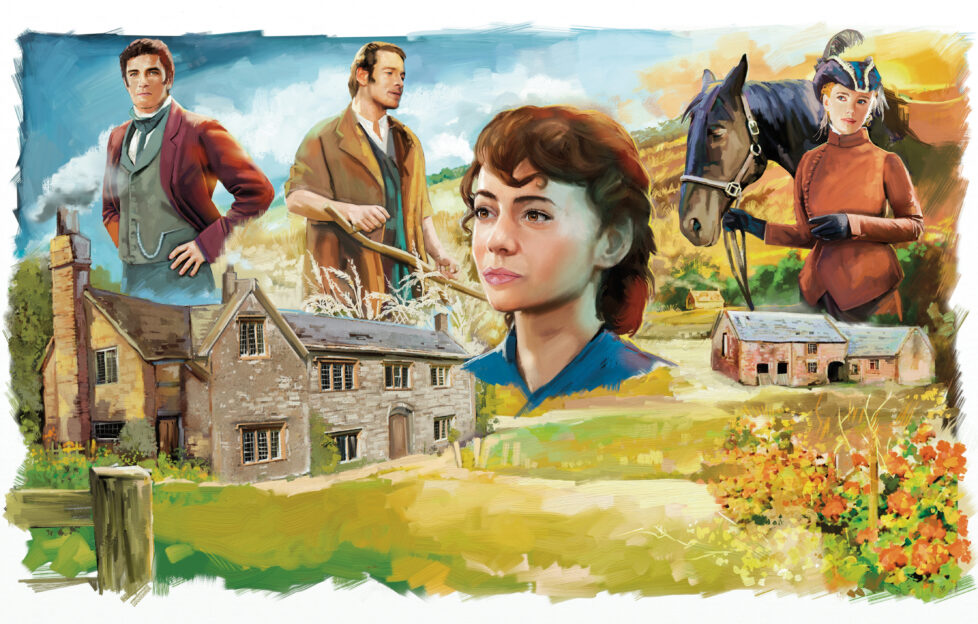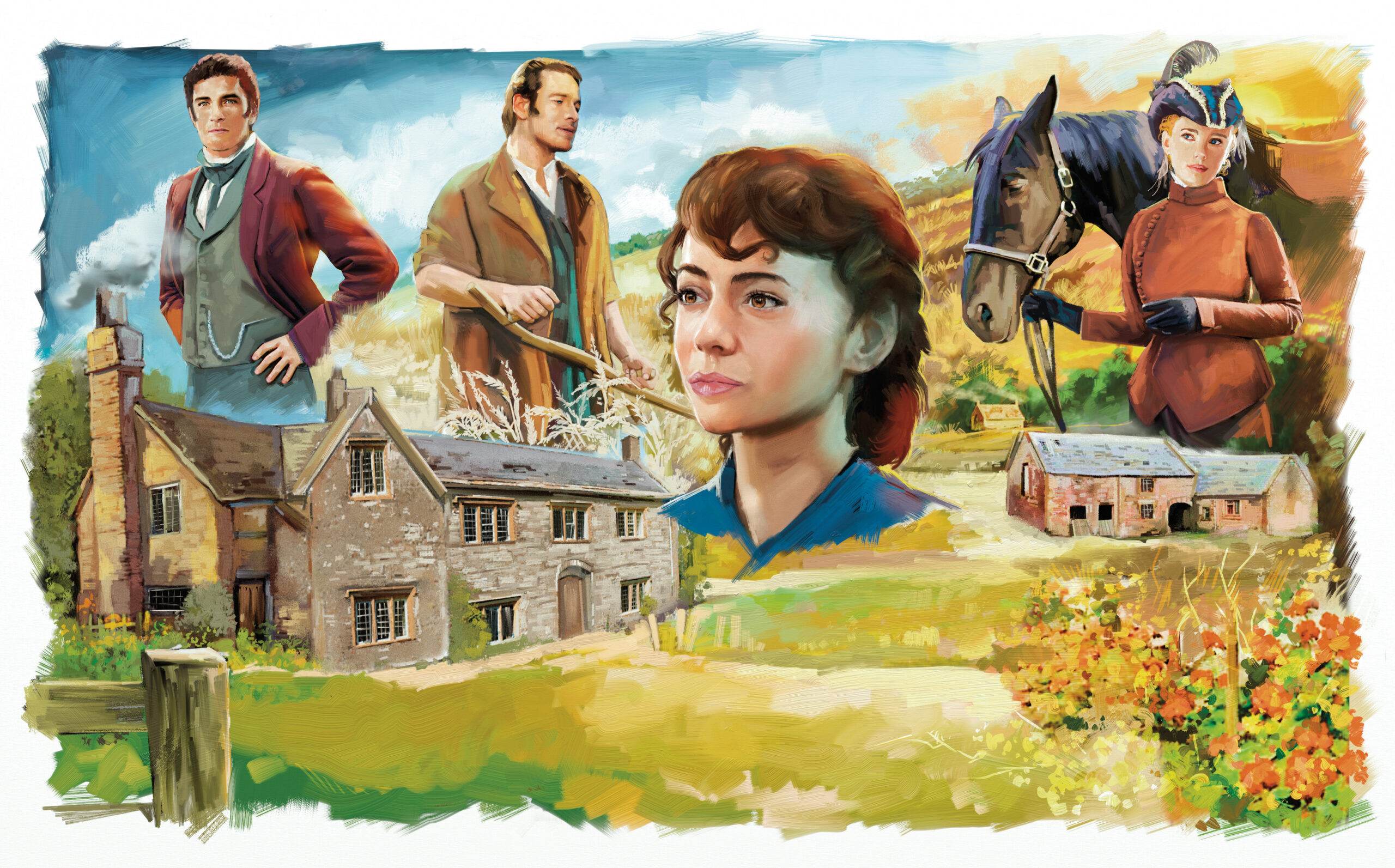About The Hollow Ground – Episode 01

About The Hollow Ground by Pamela Kavanagh
- 1. About The Hollow Ground – Episode 01
- 2. About The Hollow Ground – Episode 02
- 3. About The Hollow Ground – Episode 03
- 4. About The Hollow Ground – Episode 04
Cross Lanes Farm stood in a fold in the hills at a point where two lanes met. Fields sown with sparsely growing winter corn stretched as far as the eye could see, edged with straggling hedges of blackthorn and holly.
The farmhouse, long, low and rambling, its ancient timbers bleached by time and weather, and chimneys pluming smoke, was surrounded by yards with barns and outbuildings of red stone quarried nearby.
To the rear, a tangled garden and overgrown orchard lay silent under a lowering grey sky.
Inside the house, in a beamed and flag-floored room that had been the farm office for longer than anyone could say, Nan Vessey sat behind a scuffed oak desk on which her hard-backed journal lay open at an entry made some three weeks earlier.
February 1, 1875.
Today Papa was laid to rest in the churchyard of All Saints, Harthill. Well attended though the funeral was, and giving a terrible finality, I can scarce believe he is gone.
It was a stupid death; a fall from his horse, and he the best horseman in all Cheshire.
Nan swallowed hard, her gold-brown eyes troubled.
Henry Vessey was gone, leaving her the inheritance of a run-down farm and a host of worries, not least the need to find some form of staffing for the house before the place ran to ruin. Hence the interview.
Pale midday sunshine filtered through the leaded window. Nan, mustering control, scrutinised the girl who stood nervously before her, the work-roughened hands tightly clenched behind her back.
“How old are you, Mercy?”
“I’ll be sixteen come April, miss.”
“Are you well acquainted with household tasks?”
“Eh?” Sheer blankness crossed the girl’s face. “Beg pardon, miss. I dunna see your meaning.”
“Are you able to cook, clean and attend to the laundry?” Nan said, clarifying her words.
“Oh, aye,” the girl replied. “I can scrub and sweep and cook all right. I’m a dab hand at the wash-tub, an’ all. Mam’s seen to that.”
There was no mistaking the truth behind the statement and Nan’s heart softened.
As the illegitimate child of Patti Dale, the smith’s daughter, Mercy had not had an easy passage. Certain indiscretions might be expected of a young lass, and as long as a wedding band was put on her finger, folks were prepared to overlook the appearance of an early babe.
No wedding band, and the offspring suffered for the parent’s sin. That was the way of the world, and it was all credit to the smith that the infant had not ended up in the workhouse, the usual case in the circumstances.
Nan tucked back a strand of brown hair and gazed at the girl, her mind grappling with the problem she faced.
She would be doing herself no favours with the community by taking on a girl born out of wedlock, but what choice had she?
With the housekeeper having deserted them for a better position elsewhere, and the rest of the servants left to seek work in the towns, she was in a fix.
“You know you would be expected to live in? The working day here begins early and ends late.” If at all, Nan thought. “There is no room for shirkers at Cross Lanes.”
“I’m no shirker, miss. I dunna mind hard work, nor do I mind leaving home.”
Payment posed a problem. With the coffers low, the standard wage for a housemaid was out of the question, and this child – Nan was only five years Mercy’s senior but feeling decades older – would be expected to accomplish a great deal more than the usual household duties.
Nan made a swift calculation in her head.
“Very well, Mercy. I can offer you twelve pounds per year all found. You will receive bed and board, working clothes and a pair of boots, and payment fortnightly.”
“I’ve got the job?” Delight mixed with disbelief shone in Mercy’s eyes. “Lor’ dumble us, Mam’ll be like a dog wi’ two tails! You wunna be disappointed, miss. I’ll work hard. I will.”





